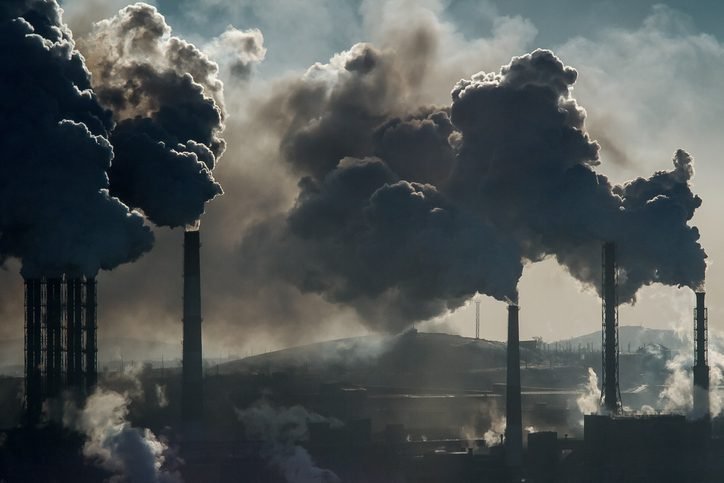Despite increased climate ambitions and net-zero commitments, governments still plan to produce more than double the amount of fossil fuels in 2030 than would be consistent with limiting global warming to 1.5°C.
This is the conclusion of the 2021 Production Gap Report, by leading research institutes and the UN Environment Programme (UNEP).
The report, first launched in 2019, measures the gap between governments’ planned production of coal, oil and gas and the global production levels consistent with meeting the Paris Agreement temperature limits.
Two years later, the 2021 report finds the production gap largely unchanged.
‘Governments must step up’
Over the next two decades, governments are collectively projecting an increase in global oil and gas production, and only a modest decrease in coal production.
Taken together, their plans and projections see global, total fossil fuel production increasing out to at least 2040, creating an ever-widening production gap.
‘The devastating impacts of climate change are here for all to see. There is still time to limit long-term warming to 1.5°C, but this window of opportunity is rapidly closing.
‘At COP26 and beyond, the world’s governments must step up, taking rapid and immediate steps to close the fossil fuel production gap and ensure a just and equitable transition. This is what climate ambition looks like.’
INGER ANDERSEN
Executive director of UNEP
Policy support for fossil fuels
The 2021 Production Gap Report provides country profiles for 15 major producer countries: Australia, Brazil, Canada, China, Germany, India, Indonesia, Mexico, Norway, Russia, Saudi Arabia, South Africa, the United Arab Emirates, the United Kingdom and the United States.
The country profiles show that most of these governments continue to provide significant policy support for fossil fuel production.
‘The research is clear: global coal, oil and gas production must start declining immediately and steeply to be consistent with limiting long-term warming to 1.5°C.
‘However, governments continue to plan for and support levels of fossil fuel production that are vastly in excess of what we can safely burn.’
PLOY ACHAKULWISUT
Lead author on the report and SEI scientist
 Play Video about This Rock Might Just Save The World
Play Video about This Rock Might Just Save The World Play Video about Play 2 hours of rock
Play Video about Play 2 hours of rock Play Video about Play 2 hours of brook
Play Video about Play 2 hours of brook Play Video about Play 2 hours of sheep
Play Video about Play 2 hours of sheep











































